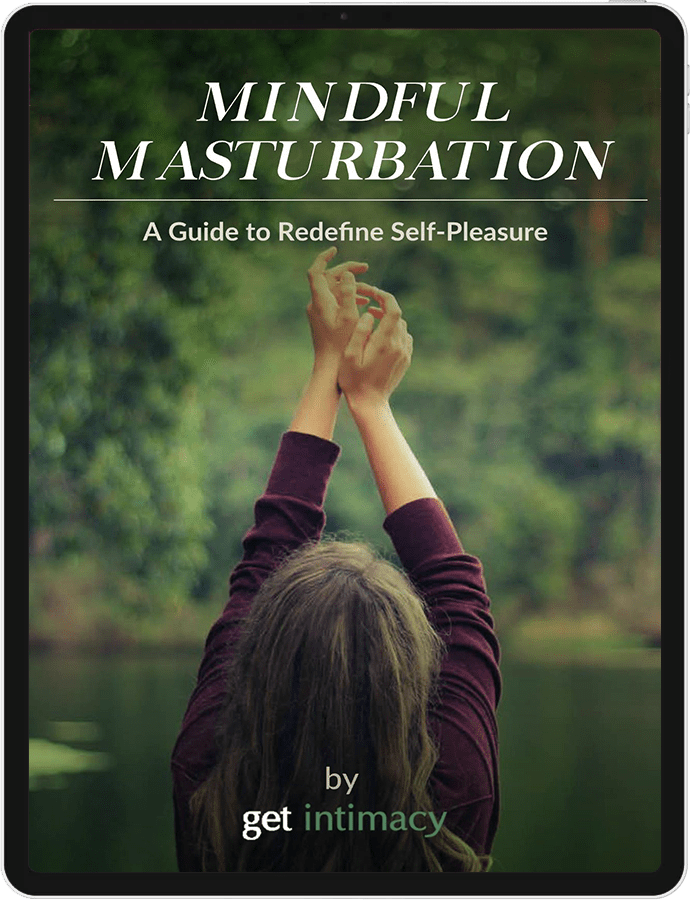
Late-night google searches about what could be behind a low-libido or a sudden dip in sexual appetite brings up the usual suspects: medication, stress, depression, hormonal fluctuations, poor diet and exercise and lack of sleep. Now these lifestyle factors can definitely have a huge impact on your sex life, but the truth is, a loss in sex drive runs much deeper than this.
Here are 10 surprising factors that may be killing your sex drive without you even realising it:
1. Your Bedroom
The bedroom is going to be the place where you have sex the most. Take a look around your bedroom. Is it warm and welcoming? Or is it cluttered, messy, dull and distracting? If your bedroom isn’t a place where you would generally want to spend time, then why would you want to have sex there? Try and create a relaxing and soothing atmosphere in your bedroom. Simply keeping it tidy, and having some warm night lamps, with clean sheets can go a long way! Let your bedroom be a space that inspires sensuality and intimacy.
2. Your Cell-phone
Cell-phones can be a huge turn-off. How often have you wanted to spend time with your partner, only to find them buried in their cell-phone? Technology addictions can rewire our brain, make us irritable, distracted and hasty. It can also build resentment between partners, and make you lose out on moments that could be spent together. Maybe spend a scheduled ‘no-phone’ time with each other, or ensure that phones are off-limits during dates or quality time together. The intimacy that can come with real-life moments is bound to help in your sex life.
3. Your timing
If you’re in a long-term relationship, chances are you initiate sex at the very end of the day, right before bed. This may come as a surprise: but this is actually the worst time to have sex, because you’re both already exhausted after a long day. You may also be discouraged by the fact that having sex will then take away the time you have left for sleep. If this sounds like you, morning sex may be a great idea, or having more sex on the weekends when there is less stress to sleep on time for a work-day.
4. Sexual pain
Did you know that 1 in 3 women experience sexual pain? This could be because of stress, muscle tightness, sexual trauma, sexual shame, menstrual disorders or a lack of arousal. If you experience pain, it’s no wonder that your body wouldn’t want sex: to protect you from experiencing pain, the body adjusts by no longer craving sex. If you think this could be you, consider seeing a professional. Most sexual pain is successfully treated through a combination of medication, talk therapy and physiotherapy.
5. Self-Esteem
Your sex-drive is closely connected to how you feel about yourself and your body. If you have poor body image, or feel unworthy of love, it may manifest in an aversion to sex, touch and pleasure. A low-sex drive may be a signal from your body that you need to indulge in some radical self-care: whether it is working on your self-esteem, exercising, meditating, going for therapy, finding new hobbies or journaling; find what works for you, and let it nourish your self-esteem and sex life!
6. The initiation
An active, healthy, and happy sex life depends on communication around our sexual wants, desires, and dislikes. And the first part of communication lies in how you initiate sex.
Akshatha, who has been married for a few years spoke to us about how miscommunication during initiation affected her sex life: ‘I have a high libido, but I didn’t know how to initiate sex during the beginning of our marriage, because I thought initiation always has to come from a man. I lost many months of pleasure thinking this way. He was also a night-owl who came home late, which widened our miscommunication.’
In Akshatha’s case, it was seeing a counselor and communicating better with her partner that improved the situation. It required a lot of talking, and it is still a conversation that they revisit from time to time. Are you and your partner able to successfully initiate sex with each other? Do you know each other’s cues and signals when the other is trying to initiate sex?
Do you give each other space to decide if and how both of you want to have sex after the first hints of initiation? And do you know how to gently turn each other down, and be respectful when the other person doesn’t want sex? Ask yourself these questions, and if there are any weak links, work on them by talking to your partner!
7. Your relationship
Your sex life doesn’t exist in isolation from other things you share with your partner. If there’s been a lot of fighting, exhaustion, resentment, and/ or a general feeling of being misunderstood or neglected by your partner, it’s no surprise that you wouldn’t want to have sex.
After all, we want to have sex with people who make us feel good, safe, loved, and desired. And if these feelings are breaking down in your relationship, you can’t expect your sex life to thrive. While no relationship is perfect, this may be a moment to take a step back and work on the basic trust, respect, communication, and comfort that nourishes every relationship. Couples therapy and a commitment to making things work again may help some couples get back on the right track. For other couples, this could be a sign that they need to reconsider the relationship or give it a pause. If you think your relationship is abusive, ignore all the above advice, and get help immediately.
8. Perfectionism
Many of us tend to bring perfectionism into our sex lives. We may think that a perfect, long-lasting erection is necessary, with a perfectly timed orgasm from both partners. We may watch porn and end up believing that both partners can pleasure each other perfectly without prior and ongoing communication. We may also believe that our bodies are supposed to look sleek, smooth, and perfect in every position, that we can’t make noises or faces that aren’t considered perfectly ‘sexy’ and that we’re supposed to get everything right on the first try.
Sexual perfectionism can create massive anxiety with regard to performance. And when this happens, the idea of sex itself may seem unappealing. If the stakes feel so high, why would you want to risk the humiliation of making a ‘mistake?’
This may be a good time to introspect on your insecurities and find a way to reconnect with your body in a way that focuses on pleasure, not performance. It may also suggest that you need to be open and honest with your partner about this problem. The more comfortable and intimate you feel with them, it will become easier for sex to feel like a natural progression of this connection, and not something that you have to ‘achieve’ in.
Remember, sex is human, clumsy, vulnerable, and messy. It isn’t meant to be perfect. Sex is meant to feel good: and this is much more important than how you look, sound or your ‘performance!’
9. Fear
We are told that sex is supposed to feel natural and organic, so when we find that we have to put in effort to make sex work, we may fear that something is wrong. And the more you worry about this, the harder it becomes to have and enjoy sex. If this is happening to you, first just pause and take a breath.
One of the biggest myths that sex is just ‘supposed to happen.’ In reality, the best sex requires more than just attraction: it requires honesty, trust and communication. And with our daily work lives, it may also require planning around timing and schedule. If you find that you have to put in thought and effort to make sex work with your partner, nothing is wrong with you! It’s absolutely normal. Don’t be afraid of the effort, planning or conversations that you need to have good sex with your partner.
Sex, intimacy and physical contact are deep, essential human desires for most of us. And an unhappy sex life can create intense feelings of loneliness and yearning.
As Samar, a professional in his 40s says: ‘I am extroverted, passionate and romantic by nature. I wanted so badly to feel this romance, and of course, passionate sex, after marriage. I had an arranged marriage, and soon it was clear to me that my wife was the opposite. She was determined to be a ‘wife’ and not a ‘lover.’ You may not believe it, but in my seventeen years of married life, I have never been hugged, kissed or cuddled. Sex has just been for duty, and never for love-making. It’s a painful truth that I crave for a loving hug.’
This is also why sexual compatibility is important in a relationship. How do you and your partner relate to sex? Are you comfortable discussing your fetishes, fantasies, desires and kinks? Is it similar for both of you? Do your sex drives match? And if not, how will you manage it?
These are questions worth asking before entering any long-term relationship. But even for the most sexually compatible couples, a sudden dip in libido may occur, or sometimes the sexual excitement just fizzles out. If this happens, don’t panic. It’s normal for your sex-drive to fluctuate over time. Don’t be afraid to seek help and support, and make sure that you aren’t making any of the libido-killing mistakes mentioned in this article! Be kind to yourself, and remember: sex is supposed to feel good, so don’t overthink it!











